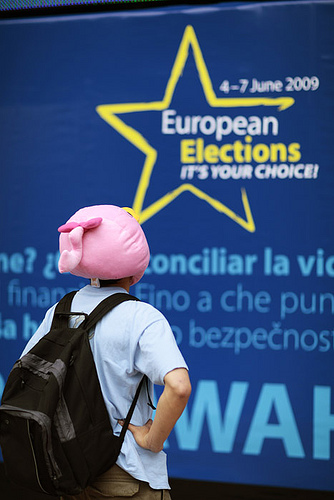
I’m in Sweden at the moment, one of the most gender-conscious countries in the world, and motivated by this I’ve been thinking about the impact of election systems on gender representation, inspired in part by this from Talking about the EU. The general rule is that list-based election systems tend to do better when it comes to representation of women as parties either use a man-woman or woman-man arrangement on lists, or even if they do not do that it looks out of place to select a team of 10 men, while selecting 10 men in 10 separate first-past-the-post constituencies, each with decision resting with a separate local party is far more likely.
So then, I wondered, what about Labour’s representation in the European Parliament?
There the list system is in operation, with man-woman or woman-man. But at the time of writing there are only 5 out of 13 female MEPs in Labour’s ranks. Essentially what has happened is that in 5 regions – South East, Eastern, North East, Wales, West Midlands – only 1 Labour MEP was returned, and that was a man. In only 2 regions – Yorkshire and the Humber, and East Midlands – did a woman top the list where a sole MEP was elected. In North West, London and Scotland 2 MEPs – 1 man, 1 woman – were elected in each region.
The system Labour uses internally to select its MEPs is to put sitting MEPs at the top of the list, a one member one vote to organise them in the case there’s more than one, and then a one member one vote ballot to determine the order of other candidates on the list. So as things currently stand, unless the men in question choose to stand down of their own accord, at least 5 regions will put a man first once more in 2014 (and indeed Scotland and London also put a man top in 2009), meaning the male imbalance is set to continue.
Add to that the fact that too many of Labour’s MEPs have been around for too long (only Derek Vaughan was new in 2009), and the selection process assists players on the rubber chicken circuit and it looks like it should be time for a reform of the system. Why even should the sitting MEPs be automatically at the top of the list anyway? Surely with greater financial resources and greater name recognition than any challengers they would be in prime place to hold on anyway, without a structural advantage in the system for them?

I’m not sure it’s lists per se, more multi member seats in general. Scotland and Wales both do better in the top ups than they do on the constituencies, etc.
Didn’t know sitting MEPs get reselected automatically, what do the members do if there’s a particularly poor MEP? Ours have to get reselected through the same STV ballot as the new candidates. They tend to dominate the first and 2nd prefs though, so it’s almost auto, but they get a chance, which is important.
Hence ours (Yorks) sends a nice little good luck card to every council candidate, every year, and similar. Incumbency gives an advantage, but it can be dealt with if there’s a problem incumbent. When Lists were first introduced, the party used some balancing effect, and each gender must have at least one person on the top three of a list, not sure if the ‘zipping’ is still in force, and wasn’t a member at the time anyway, can probably find an explanation somewhere. It does explain why our MEPs are better balanced than our MPs, anyway.